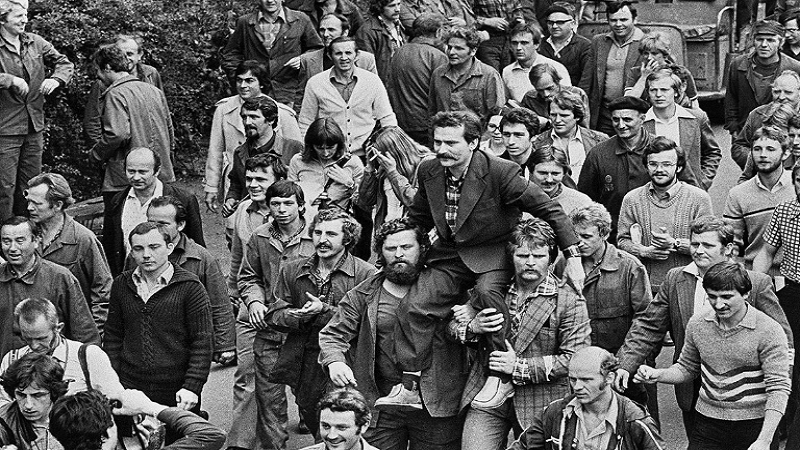
The following is the text of my presentation to the international seminar held in Oslo this week by the Arthur Svensson foundation.
First of all, I want to thank the Svensson foundation for the invitation to speak here today, and also for your decision in 2016 to award the prize to LabourStart. That recognition was enormously important for us, as it will be for the other recipients including this year’s winner.
I think it was on one of my visits to Scandinavia that I met a trade unionist who was active in Amnesty International and he was wearing a t-shirt with the slogan “workers’ rights are human rights” and at the time I remember thinking — well, that’s obvious.
Perhaps the most famous example that proves that connection between workers’ rights and human rights was the struggle of Polish workers, initially dock workers, in the early and mid 1970s. Eventually, that struggle resulted in the birth of Solidarnosc, the first successful independent trade union in a Stalinist country. And the rise of Solidarnosc is what led to the collapse of the one-party state and the establishment of democracy in Poland and elsewhere in the former Soviet bloc.
That fight is not yet over, as we can see in the fact that LabourStart this week has launched a campaign at the request of the Polish dock workers union to support one of their members, who was sacked for his trade union activity. That worker was employed by, and was sacked by, a giant transnational corporation, which is also the target of another ongoing LabourStart campaign in Pakistan, where eight workers have also been sacked for their union activity.
So those workers in Poland may have won the right to join a free and independent trade union and are no longer the victims of state interference as they were during the Stalinist period, but now they face the challenge of transnational corporations that are no better at respecting workers’ rights, than the totalitarian regime which they got rid of a generation ago.
We in the labour movement need to say consistently and clearly that workers’ rights are fundamental human rights, and that workers have the right to join and form trade unions, independent of the state and their employers, and to engage in collective action including strikes. And that is true in Poland whether it’s a Stalinist state or a capitalist one, and it’s true in Pakistan, and even here in Norway.
We live in a time when not only workers’ rights but democracy itself is under assault around the world. That attack on democracy is always an attack on workers. It doesn’t matter if the leaders claim to be populists who care about ordinary people or not. And how widespread is this anti-democratic phenomenon? I can just rattle off some of the names — Putin, Trump, Erdogan, Orban, Bolsonaro, Duterte, Netanyahu.
Human rights and workers rights are under attack in all the countries they lead. And unions are often in the front lines of the fight for democracy in these countries.
So what do we need to do to defend the rights of working people at such a dangerous moment?
First of all, to paraphrase a former Nobel Prize for Literature laureate, we need to acknowledge that there are no “internal affairs” left on our crowded planet.
Here in Norway, where trade union rights are generally respected, you need to react to the sacking of dock workers in Poland and Pakistan as if those workers were members of your own dock workers union. You need to mobilise the members of your unions and the general public every time workers rights are violated, no matter where this happens in the world. International trade union solidarity has never been more needed than today, in this globalised world of ours.
But in addition to taking the lead in defending democracy, unions need to renew their political vision. There was a time when people who felt left out, on the margins, who were treated unjustly, or who just wanted a better and fairer world would support social democratic parties. That is not the case today. But it must become the case tomorrow if democracy is to survive.
Let me illustrate this with an example from the United States. If the choice is between the representatives of a neoliberal global elite such as Hillary Clinton or a populist demagogue like Donald Trump, then democracy is finished. But if a social democratic alternative exists, like Bernie Sanders, then there is hope.
We are seeing signs of hope today in the electoral victories of some social democratic parties in different parts of Europe — in Spain, in Finland, and even in your neighbour, Sweden.
In conclusion then, what we need to be doing is putting our unions in the forefront of the fight to defend workers rights and democracy more broadly — and at the same time, to renew our social democratic movement worldwide. And in those struggles, for democracy, for workers rights, for a fairer, more just and sustainable society, there are no borders.